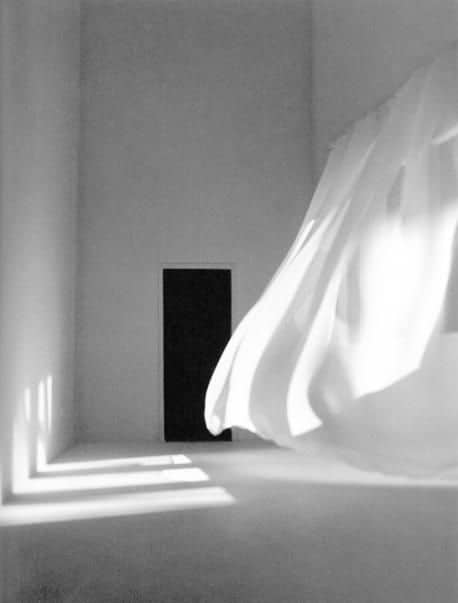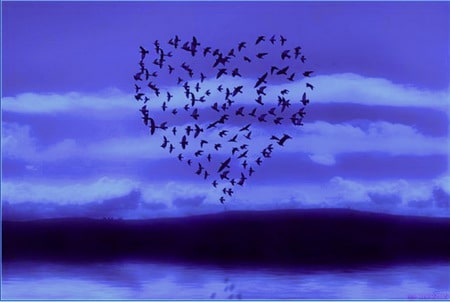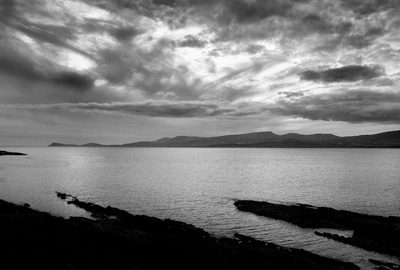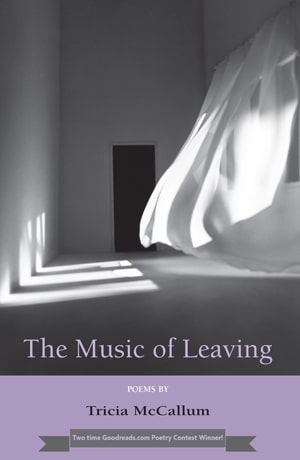February 13, 2014
No Comments
Trust your heart if the seas catch fire, live by love though the stars walk backward.
― E.E. Cummings
Young love shall rest with us,
And we will give old Time
his silken wings.
— from A Love Song by Canadian poet W.F. Hawley.
To mark Valentine’s Day I’ve gathered together some of my own poems about love to share with you along with a wide assortment by other authors, wonderful poems that I wish I had written myself. From Shakespeare and Bronte to Hirshfield and Cummings.. Interspersed with favourite quotes, and all on the subject of love. Good love, bad love, and everything in between.
Let’s begin with Jane Hirshfield’s “The Promise.”
Stay, I said
to the cut flowers.
They bowed
their heads lower.
Stay, I said to the spider,
who fled.
Stay, leaf.
It reddened,
embarrassed for me and itself.
Stay, I said to my body.
It sat as a dog does,
obedient for a moment,
soon starting to tremble.
Stay, to the earth
of riverine valley meadows,
of fossiled escarpments,
of limestone and sandstone.
It looked back
with a changing expression, in silence.
Stay, I said to my loves.
Each answered,
Always.
This piece is by the transcendent E.E. Cummings. There’s an intensity, a relentlessness to this, among all his poems, that makes it particularly powerful.
i carry your heart
i carry your heart with me (i carry it in
my heart) i am never without it (anywhere
i go you go, my dear; and whatever is done
by only me is your doing, my darling)
i fear no fate (for you are my fate, my sweet) i want
no world (for beautiful you are my world, my true)
and it’s you are whatever a moon has always meant
and whatever a sun will always sing is you
here is the deepest secret nobody knows
(here is the root of the root and the bud of the bud
and the sky of the sky of a tree called life; which grows
higher than soul can hope or mind can hide)
and this is the wonder that’s keeping the stars apart
i carry your heart (i carry it in my heart)
Here’s one from American poet Jena Strong. I am a great fan of her work. You should follow her: She is an amazing writer. www.jenastrong.com
Throwdown
give me the drag queens, dolled up and delicious
the two moms bickering over the dishes
the orphans, adopted, the chosen, the trannies
the witches, the protestors, tattooed laughing grannies
the boys wearing tutus and …all the shirtless
daughters of the revolution playing basketball
on the broken courts of lost fathers
the failures, the forgotten, the throwdown, the freak show
the hurts and the heartbreaks, the hassles and headaches
the beggar, the baron, the shelter, the clambake
trade in the cynical, the stubborn, the splintering showdown
because it’s time to unite now, yes it’s time to ignite now
it’s time to pick up the phone to say, It’s me and I love you
From A Love Poem by Garrison Keillor:
I believe in impulse, in all that is green,
Believe in the foolish vision that comes true,
Believe that all that is essential is unseen,
And for this lifetime I believe in you.
No treatise on love is complete without an entry from Pablo Neruda.
I love you without knowing how, or when, or from where. I love you simply, without problems or pride: I love you in this way because I do not know any other way of loving but this, in which there is no I or you, so intimate that your hand upon my chest is my hand, so intimate that when I fall asleep your eyes close.
Here’s one of mine, a poem called “The Gift of Donovan” that I wrote about a gift from a boyfriend in high school.
The Gift of Donovan
A frigid November day in Barrie, Ontario, 1967.
Wednesday, I remember;
We had just come from Novena Devotions.
Mark led me downtown to the town’s one record store,
“For a surprise,” he said.
The proprietor was in on this, I soon realized,
watching him head to the stacks of wooden slots on the wall
and retrieve a disc in its sturdy paper sleeve.
He held it up to show Mark, who nodded his approval.
On went my new record to the turntable and then came
Donovan’s innocent, accented voice,
Wafting through the shop,
Colour sky havana lake
Colour sky rose carmethene
Alizarian crimson…
The bewitching refrain,
Lord, kiss me once more
Fill me with song
Allah, kiss me once more
That I may, that I may…
Wear my love like heaven…
Colours, worlds I had not yet heard of,
at the age of 15.
Yet, I sensed the magic of which Donovan sang.
Sensed these were things I would one day know.
I went on to my life, Mark to his.
Not long after, he died, still a young man,
never giving me a proper chance to thank him for his gifts that day,
to thank him for seeing me in a way I had never seen myself,
as a girl worthy of such an elaborate staging,
to thank him for giving me,
in that tiny frozen town,
an impossibly beautiful song.
Excerpt from
To Love Another by Rainer Maria Rilke
For one human being to love another human being: that is perhaps the most difficult task that has ever been entrusted to us, the ultimate task, the final test and proof, the work for which all other work is merely preparation.
Song of the Open Road
by Walt Whitman
I give you my hand.
I give you my heart for safe keeping
I give you myself before preaching or law;
Will you give me yourself?
Will you come travel with me?
Shall we always be best friends?
Shall we stick by each other as long as we live?
This is “Believe Me, If All Those Endearing Young Charms” an Irish song written by the poet Thomas Moore in 1808.
How the piece came into being is an affecting story. It is said that after Moore’s wife contracted smallpox, she refused to let herself be seen by anyone, even her husband, due to the disfiguring effects of the disease to the skin on her body, and because she believed he could not love her after her face had been so badly scarred. Despairing at her confinement, Moore composed the lyrics of this song to reassure her that he would always love her regardless of her appearance. He wrote later that after hearing him sing to her from outside her bedroom door, she finally allowed him inside and fell into his arms, her confidence restored.
I found it when I went searching for a verse to read at a friend’s wedding a few years ago. He was a lifelong friend of mine, marrying for the first time, and asked if I would speak at the reception about what marriage meant to me. I’d never been married at that time and was surprised he asked, but honoured he did.
I hunted for a long time for exactly the right piece to read and found this, which I feel expresses so poignantly the kind of love that abides through time and illness and the many vagaries of our lives. This is a love that is very rare indeed and seems to me the only love worth having.
The reception was held in a garden of a lovely home in southern California, with a quartet of musicians softly playing standards in the background. It was just before sunset when I was called to read and the light had taken on that ethereally beautiful violet hue. The bride and groom were watching from a balcony above. The setting was beyond romantic: I hope my reading did justice to the occasion.
Here then is Moore’s eloquent ode to his beloved:
Believe me, if all those endearing young charms,
Which I gaze on so fondly today,
Were to change by tomorrow and fleet in my arms,
Like fairy gifts fading away,
Thou wouldst still be adored, as this moment thou art,
Let thy loveliness fade as it will;
And around the dear ruin each wish of my heart
Would entwine itself verdantly still.
It is not while beauty and youth are thine own,
And thy cheeks unprofaned by a tear,
That the fervor and faith of a soul can be known,
To which time will but make thee more dear.
No, the heart that has truly loved never forgets,
But as truly loves on to the close
As the sunflower turns on her god when he sets
The same look that she turned when he rose.
***
Being deeply loved by someone gives you strength; loving someone deeply gives you courage.
At the touch of love everyone becomes a poet.
The supreme happiness in life is the conviction that we are loved.
***
Here’s one of the very first poems I ever wrote:
You Were Like…
You were like a good stretch after sleeping
An apartment done all in blue.
And Sunday breakfasts
Like helpless laughter
Forty-five miles to the gallon
And a table lighter that really works
Like lovely soulful hands
Melancholy sunsets
And hopeless romantics like me.
I simply had to include another by E.E. Cummings. The idea, the image here, of the rain having “small hands” is brilliance itself.
somewhere i have never travelled
somewhere i have never travelled, gladly beyond
any experience, your eyes have their silence:
in your most frail gesture are things which enclose me,
or which i cannot touch because they are too near
your slightest look easily will unclose me
though i have closed myself as fingers,
you open always petal by petal myself as Spring opens
(touching skilfully, mysteriously) her first rose
or if your wish be to close me, i and
my life will shut very beautifully, suddenly,
as when the heart of this flower imagines
the snow carefully everywhere descending;
nothing which we are to perceive in this world equals
the power of your intense fragility: whose texture
compels me with the colour of its countries,
rendering death and forever with each breathing
(i do not know what it is about you that closes
and opens; only something in me understands
the voice of your eyes is deeper than all roses)
nobody, not even the rain, has such small hands
This is a poem from my first book about the deep love my parents shared.
Till Death Us Do Part
In the afternoons, after the nurse has left and his errands are run,
he perches at the foot of her bed pretending to read,
staring at his book, alert for her movement.
There he sits most days until the light leaves the bedroom windows,
rising only for essentials.
No matter how stealthily he moves, so as not to disturb her,
my mother stirs, calling his name.
“It’s alright, Cathy.” comes his usual, whispered response.
“Just so I know you’re there, James,” she says, momentarily comforted,
before succumbing again to her ravaged, fitful sleep.
They said vows once,
nearly 50 years ago now.
For richer, for poorer….
Took them to heart
this man, this woman,
and these are two
who actually lived them
and will
in turn
die by them.
A Marriage by Michael Blumenthal
You are holding up a ceiling
With both arms. It is very heavy,
But you must hold it up, or else
It will fall down on you. Your arms
Are tired, terribly tired,
And, as the day goes on, it feels
As if either your arms or the ceiling
Will soon collapse.
But then,
Unexpectedly,
Something wonderful happens.
Someone,
A man or a woman,
Walks into the room
And holds their arms up
To the ceiling beside you.
So you finally get
To take down your arms.
You feel the relief of respite,
The blood flowing back
To your fingers and arms.
And when your partner’s arms tire,
You hold up your own again
To relieve him again.
And this can go on like this for many years
Without the house falling.
After Love by Maxine Kumin
Afterwards, the compromise.
Bodies resume their boundaries.
These legs, for instance, mine.
Your arms take you back in.
Spoons of our fingers, lips
Admit their ownership.
The nodding yawns, a door
Blows aimlessly ajar
And overhead, a plane
Singsongs coming down.
Nothing is changed, except
There was a moment when
The wolf, the mongering wolf
Who stands outside the self
Lay lightly down, and slept.
From Hamlet (written to Ophelia) by William Shakespeare:
Doubt thou the stars are fire;
Doubt that the sun doth move;
Doubt truth to be a liar;
But never doubt I love
The Confirmation by Edwin Muir
Yes, yours, my love, is the right human face.
I, in my mind, had waited for this long,
Seeing the false and searching for the true,
Then found you as a traveler finds a place
Of welcome suddenly amid the wrong
Valleys and rocks and twisting roads.
From Jane Eyre by Charlotte Bronte:
I have for the first time found what I can truly love – I have found you. You are my sympathy – my better self—my good angel—I am bound to you with a strong attachment. I think you good, gifted, lovely: a fervent, a solemn passion is conceived in my heart; it leans to you, draws you to my center and spring of life, wraps my existence about you—and, kindling in pure, powerful flame, fuses you and me in one.
This is another of my poems:
Smoke Signals
How can you not think of me
in winter
when afternoons dwindle on
in grayness
remembering our summers
spent wrapped together.
Not miss me late at night
in the absolute stillness
when nothing stands between you
and your memories of me.
Don’t you have moments
when the pain is too much
when you get tired of saying onwards
when you get tired of alone.
Don’t you yearn
to etch my name
onto frosted windows
carve it
into the bark of trees
trail it
in smoke across skies
shout it at will.
As if by doing so
I will magically come again
having been beckoned
with such longing.
A Love Song by Canadian poet W.F. Hawley
Yes, I will love you when the sun
Throws first light upon a thousand new flowers;
When winter’s biting breath is gone,
And spring brings on the happier hours.
And I will call you beautiful –
More beautiful than May’s brightest signs,
Though all the air be filled with sweetness
And every bird his song again finds.
I’ll love you when the autumn winds
Sweep across our window pane;
When the last flower finds its cold bed
And birds are far away again:
When the last pale and withered leaf
Along the swollen stream floats on —
One thought of you shall give relief,
Though bright and lovely things are gone.
And I will shield you when the breath
Of winter beats upon the earth;
And we will laugh at nature’s death.
Young love shall rest with us,
And we will give old Time
his silken wings.
When asked for the source of his greatest creative inspiration, American singer songwriter Bob Dylan selected Scots poet Robbie Burns’ 1794 song A Red, Red Rose as the lyrics that have had the biggest effect on his life.
O my love is like a red, red rose,
That’s newly sprung in June;
O my love’s like the melody
That’s sweetly played in tune.
As fair thou art, my bonnie lass,
So deep in love am I,
And I will love thee still, my dear
Till a’ the seas gang dry.
Till a’ the seas gang dry, my dear,
And the rocks melt wi’ the sun,
I will love thee still, my dear,
while the sands of life shall run.
And fare thee well, my only love,
And fare thee well a while,
And I will come again my love ,
Though it were ten thousand mile.












 A sequence of my poems has been published in a hardcover book entitled The Music of Leaving Poems by Tricia McCallum
A sequence of my poems has been published in a hardcover book entitled The Music of Leaving Poems by Tricia McCallum
Thanks for sharing